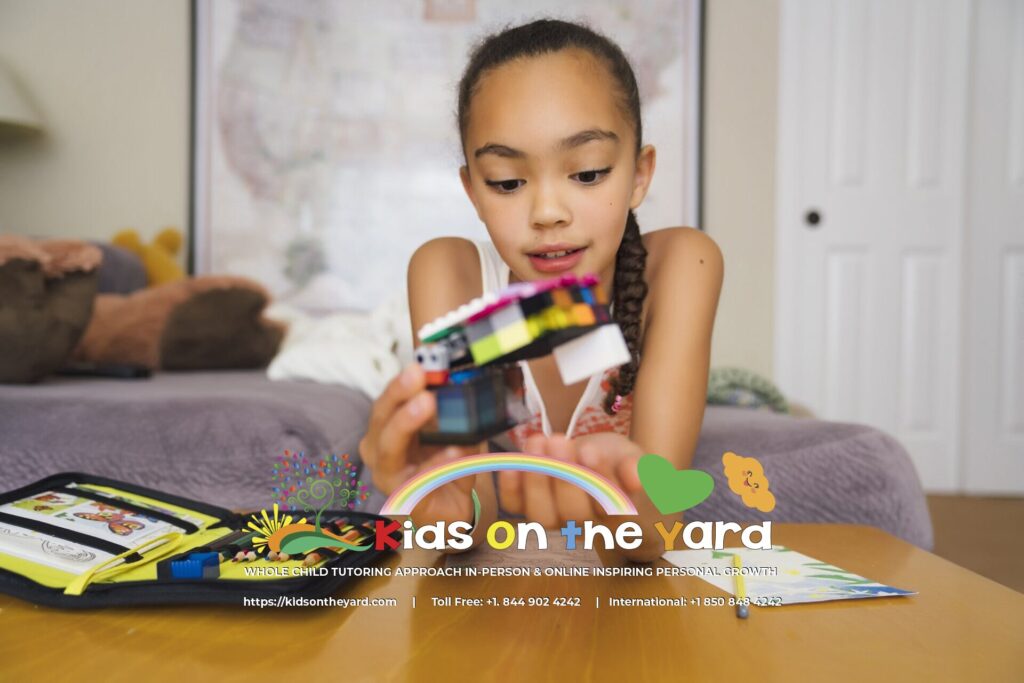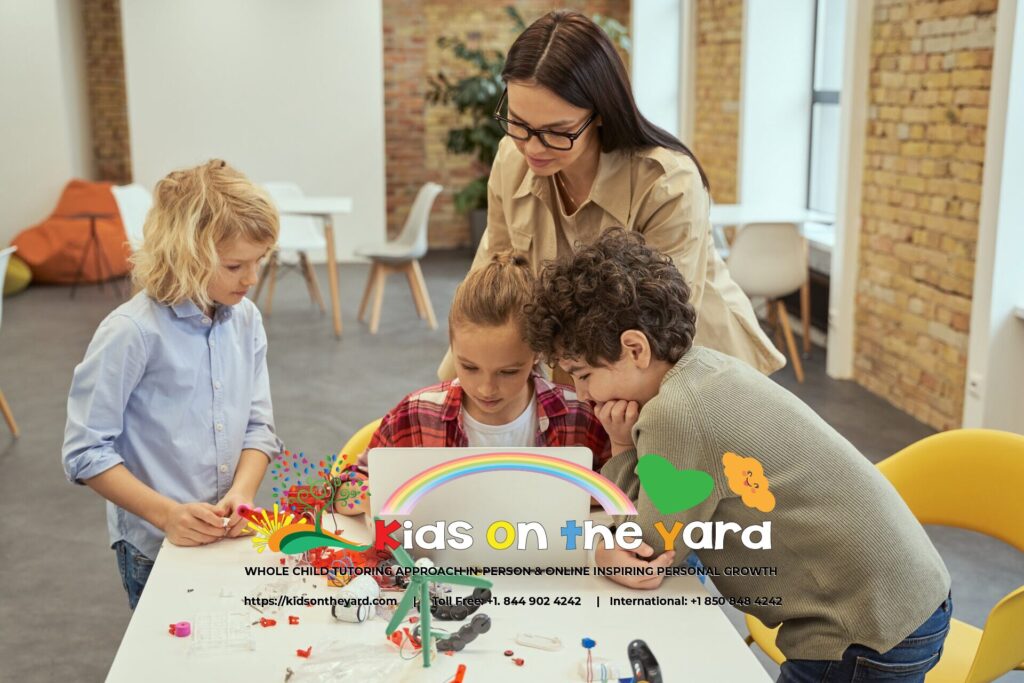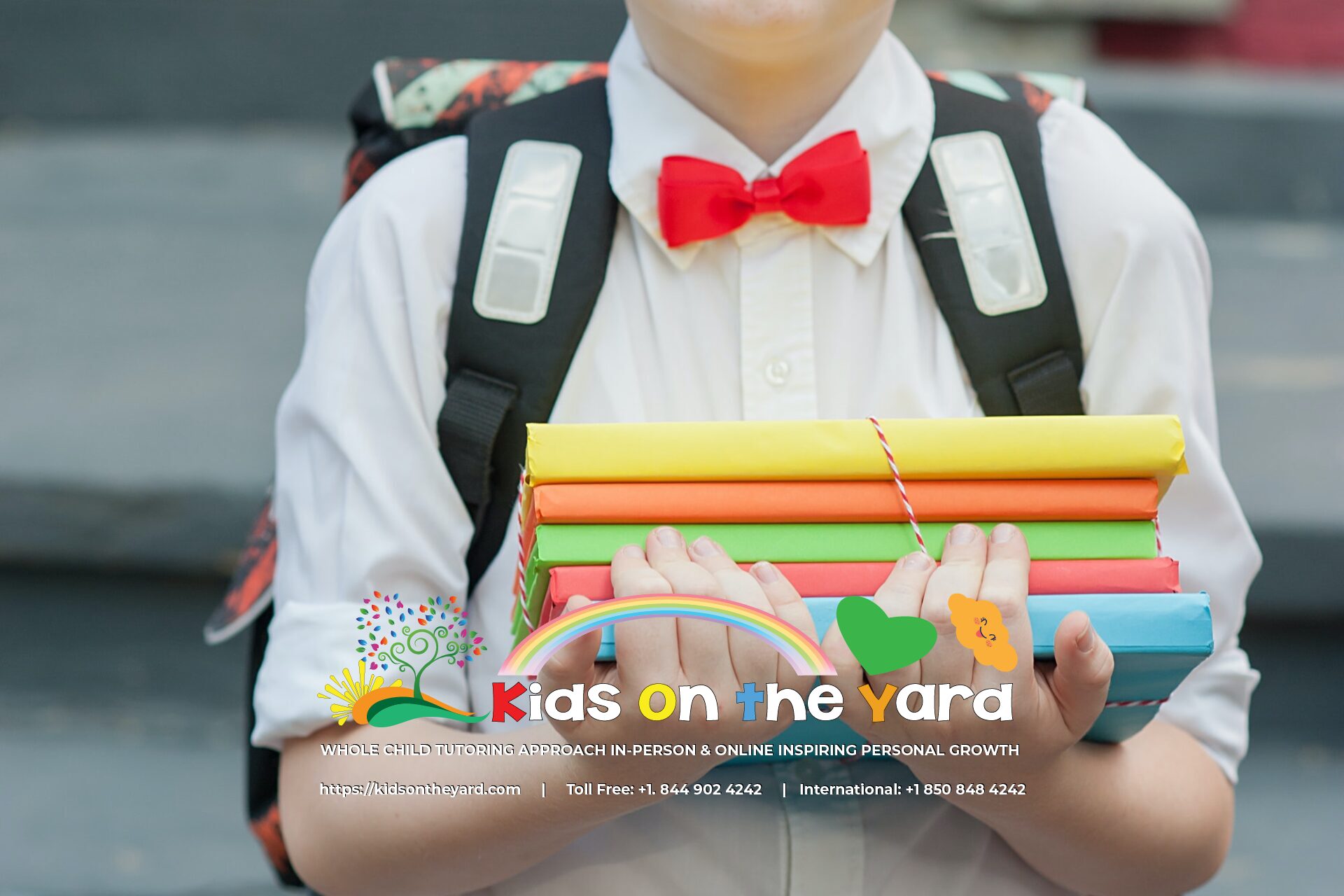|
Audio Article
|
Navigating early education’s developmental milestones can be exciting and daunting for parents. As your child embarks on the educational journey of first grade, it’s essential to understand the building blocks that will shape their academic growth. From delving into the foundational elements of math and language arts to fostering a curiosity for science and social studies, a well-rounded first-grade curriculum is pivotal in setting the stage for lifelong learning. Beyond the classroom, establishing a robust partnership with your child’s teacher is a critical component of your child’s success. This guide aims to empower you with the knowledge and strategies needed to support your first grader’s educational path and ensure that the transition into formal schooling is a harmonious and productive experience for you and your child.
Understanding 1st Grade Curriculum
Essential Building Blocks: Core Subjects and Skills for Your 1st Grader
Ah, first grade! It’s a special time when little minds blossom, and the foundation for lifelong learning is lovingly laid down. It’s like watching your child take those first independent strides into a world of discovery. As a family-focused group, we understand just how pivotal this year is, and it’s exciting to share what core subjects and skills will help your 1st grader thrive.
First up, Reading and Phonics is the powerhouse of first-grade learning. By the end of the year, kiddos should master the alphabet, both uppercase and lowercase letters, and the sounds they make. This is the golden year to cultivate a love for books, so encourage frequent reading of age-appropriate texts, both fiction and non-fiction. Key goals are to understand simple sentences and recognize and read common words (‘sight words’) by sight.
Next, Writing – it’s not just about penmanship, though, of course, that’s part of it! First graders should practice writing letters neatly and within the lines, but also string these letters into words and sentences. Composition skills begin here with kids learning to express ideas through written words and constructing basic sentences with proper capitalization and punctuation.
Then, there’s Math – this is where things start to add up (quite literally!). Expect first-graders to count forwards and backward, sometimes even into the hundreds! They should understand and use numbers less than or equal to 120. Basic addition and subtraction come into play, along with recognizing shapes and understanding measurements like length and time.
We cannot overlook Science – It’s all about curiosity here. First graders should be exploring the natural world, learning about plants, animals, and simple scientific concepts through observation and hands-on activities. The goal is to encourage inquiry skills: asking questions, making predictions, and conducting simple experiments.
Social Studies is about Understanding the World around them. First graders start by grasping the concept of communities and their roles within them. They learn about significant historical figures, cultural traditions, holidays, and geography basics, like identifying continents and oceans.
Let’s talk about social skills and work habits. This is when children start understanding a classroom environment’s give and take. They will work on listening attentively, following instructions, and completing tasks independently. Good work habits are also introduced, such as organizing their belongings and managing time effectively.
Lastly, Art and Creativity – Encourage children to express themselves through various mediums. It’s not just about the finished product but about fostering creativity, motor skills, and sometimes just making a glorious mess (within reason!).
Now, remember that each child is unique and may progress at their own pace—so patience and encouragement are the keys. Keep those learning experiences positive and filled with love, and watch that first-grade year be an unforgettable chapter in your little one’s life journey. Keep nurturing those minds and fostering those hearts, and don’t forget that you’re cultivating the next generation of thinkers, doers, and dreamers!

Effective Communication with Teachers
Bridging the Gap: A Parent’s Guide to Effective Communication with 1st Grade Teachers
Communicating effectively with your child’s first grade teacher ensures a successful schooling experience. While parents may already have strategies in place for discussing academic subjects like reading, phonics, and creativity, there are many more avenues to explore to maintain a strong, supportive relationship with teachers.
Attend Parent-Teacher Conferences with Purpose
Parent-teacher conferences are a formality and a golden opportunity to engage in meaningful dialogue about your child’s progress. Come prepared with questions that go beyond grades and report cards. Ask how your child interacts with peers, responds to challenges, and adapts to the classroom environment.
Establish an Open Line for Communication
Consider setting up a regular communication method that works for both parties, such as a weekly email or a quick chat at pick-up time. This habit ensures that any concerns or triumphs are shared in real time, avoiding the buildup of unspoken issues.
Be an Active Participant in Classroom Activities
Volunteering for classroom events or school outings showcases your commitment to your child’s education and allows you to see the teacher’s methods firsthand. This firsthand experience can lead to more informed conversations about educational techniques and teacher expectations.
Encourage Your Child to Share
Teach children to communicate their school experiences. Their anecdotes can offer valuable insights into their classroom dynamics and serve as conversation starters with their teachers. Plus, it boosts your child’s own communication skills.
Explore the Curriculum Together
Understanding the curriculum can help you ask pointed questions about your child’s experiences with specific topics and projects. Teachers often appreciate when parents take an active interest in the educational material.
Don’t Wait for Concerns to Escalate
If you sense that an issue is arising, whether related to social conflicts or assignment difficulties, address it with the teacher sooner rather than later. Prompt communication can prevent many challenges from growing into more significant problems.
Show Appreciation and Respect
Teachers are invaluable allies in the educational journey. A simple thank you note or a gesture of appreciation goes a long way in maintaining a positive, respectful relationship. Everyone wants to feel valued, and teachers are no exception.
Utilize Technology Judiciously
Many schools now use apps or online portals where parents can monitor their child’s progress and communicate with teachers. Use these tools to stay informed and reach out when necessary, but be mindful of the teacher’s time and other responsibilities.
Ultimately, the key to communicating with your child’s first-grade teacher is to be proactive and engaged and always approach positive interactions and a collaborative spirit. Remember, a successful partnership between parents and teachers is one of the most influential factors in a child’s educational success. Let’s make it count.

Supporting Learning at Home
Supporting our bright-eyed first graders at home goes beyond the crayons, the ABCs, and the 123s. A whole world of discovery awaits our little ones; we are the primary guides on this exciting journey. Parents can do a few activities at home to nurture their child’s learning and development.
Building Emotional Intelligence
One of the most meaningful gifts we can give our children is the understanding and management of their emotions. Encourage your child to express their feelings about their day, what makes them happy, or what may have troubled them. Use moments of conflict or frustration as teaching points by labeling emotions and working through them together. Discuss characters’ feelings in stories or role-play different scenarios to build empathy.
Fostering Independence
First grade is a time when many children start to seek a little more independence. Support this at home by establishing routine tasks they can do independently, such as organizing their school supplies, making their bed, or helping out with age-appropriate chores. These activities reinforce responsibility and the concept of contributing to the family unit.
The Power of Play
Don’t undervalue the role of play. Structured games and free playtime equally contribute to a child’s learning development. Board games, puzzles, and card games promote critical thinking and problem-solving. Meanwhile, imaginative play encourages creativity and emotional development. Spend time playing together or set up playdates to enhance their social interaction skills.
In Tune with Technology
In an increasingly digital world, first graders are no strangers to technology. Rather than shunning screens, integrate technology in a way that amplifies learning. Seek out educational apps or games that align with their studies at school. Set time limits and ensure that their digital content is age-appropriate and constructive.
Health, Nutrition, and Physical Activity
A well-rounded first grader is not just one who excels academically but also takes care of their body. Educate them about healthy eating by involving them in meal planning and preparation. Encourage physical activity by taking family walks, bike rides, or playing active games together. Instill the value of health and well-being from an early age.
Celebrate Efforts and Achievements
Every step forward deserves recognition. Celebrate not only the achievements but also the efforts. Did they try really hard on that tough math problem? Did they share respectfully during a disagreement with a sibling? Celebrate these moments! Positive reinforcement and encouragement are powerful motivators for children.
Engage with Learning Resources
Utilize local libraries, museums, educational centers, and community events that offer resources and learning opportunities. Whether it’s a science exhibit, a reading club, or a social service event, each opportunity provides a rich learning experience that complements their school education.
Navigating the eventful first-grade year is a significant phase for children and parents alike. By engaging in these activities at home, parents can provide a strong support system beyond the classroom, fostering a love for learning and a foundation for lifelong education. And, as always, let love lead the way. Happy learning, happy teaching!

Embarking on your child’s academic journey with a well-informed perspective is a profound gift that sets the stage for their success and fosters a love for learning. You become an indispensable ally in your child’s growth by engaging with the educational process, understanding the curriculum, and partnering with teachers. Your role in supporting learning at home is just as crucial, creating an environment where education and daily life intertwine seamlessly. As parents, your proactive involvement, encouragement, and genuine interest in your child’s first-grade experience serve as the guiding light on the path of their educational adventure. Remember, your support is a cornerstone in their academic achievements and personal development.
Does your child require the help of a tutor?
We can help! At Kids on the Yard, we offer a top-notch, flawless experience since our tutors have the credentials, specific performance, and values that align with your child’s needs. We base our tutoring services on research, critical thinking, creativity, problem-solving, perseverance, leadership, communication, collaboration, global awareness, personal well-being, and Information Technology.
You don’t have to look elsewhere; we have the best solutions for children of all ages and of varying strengths.
Call us Toll-free at 844 902 4242 for more information.


